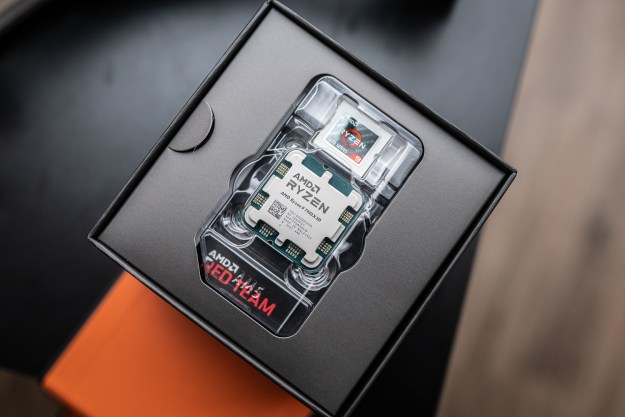Intel briefly fell behind AMD in the desktop CPU market share, according to new data from the benchmarking firm, PassMark. AMD at one point had a near 1.6% lead over its rival Intel in total analyzed systems before the AMD lead fell to a near 0.4% gain for Intel a day later.
According to the data, at one point, on January 4, AMD’s share in PassMark’s benchmarking tests was at 50.08%, whereas, Intel’s was standing at 49.2%. The numbers have since switched back to favor Intel, with the chipmaker standing above at a 50.2% lead over AMD’s 49.8% at the time of publishing on January 5.

These numbers don’t truly represent the full scope of the market, as it only analyzes “thousands” of PerformanceTest benchmarks on Windows PCs, but it does show that AMD is making gains over Intel in the desktop space with its latest lineup of Ryzen processors. According to the numbers, it’s been 14 years since AMD last achieved the feat of beating Intel, even for a brief moment.
At this same point in 2019, the lead was much bigger for Intel in PassMark’s data, as Intel held a 57.4% share over AMD’s 42%, but that now has shrunk significantly with today’s data. Even in Steam’s annual hardware survey, November 2020 numbers showed that AMD was chipping away at Intel’s share in the CPU space on the game service. The last time AMD had a large lead over Intel in the desktop space came in the first quarter of 2006, according to TechSpot.
As we noted, in the desktop space, AMD’s current best CPU, the Ryzen 9 5900X and 5950X, beat anything Intel has to offer, clocking in with 12 and 16 cores. Intel, though, could make even more gains over AMD with its 11th-gen desktop processors, which could be coming in early 2021. The new Intel processors promise frequency changes and faster clock speeds.
In the laptop space, though, Intel still holds strong. According to the PassMark Data, AMD holds only a 17% share of analyzed laptops, whereas Intel has a commanding 83% lead. AMD is still ahead in chipset technology, as its latest Ryzen laptop chips are built on the 7nm transistors, whereas Intel’s Tiger Lake and Ice Lake chips are still stuck on the 10nm transistors. In the desktop space, meanwhile, AMD is working on 5nm Zen 4 chips, whereas Intel is still on 14nm.
Editors' Recommendations
- It just became the perfect time to buy a last-gen Intel CPU
- The only Intel CPU you should buy is over a year old
- Intel said AMD’s Ryzen 7000 is snake oil
- Intel just made a huge comeback, and it’s bad news for AMD
- Nvidia’s outrageous pricing strategy is exactly why we need AMD and Intel



